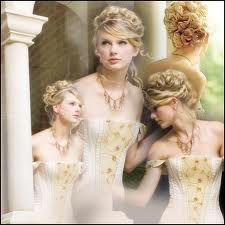A friend of mine trying to quit
smoking once made a bargain to go cold turkey with another friend and hold each
other accountable. After a week, my friend
broke down and slinked back into his favorite tobacconist’s shop, only to bump
into—you guessed it—his partner in accountability. Or crime, as it were.
That’s essentially the idea behind Love’s Labour’s Lost, Shakespeare’s play
about four young bachelors who swear a three-year vow of celibacy in order to
devote themselves to study in brotherly fraternity—only to catch each other in
the act of pining when a delegation of four ladies comes through town.
My cold-turkey friend ended up
having a good laugh with his co-conspirator, and then buying packs of American
Spirits. Likewise, there’s something so
very understandable about Berowne—one of the bachelors, and the cleverest—and
his rationale for breaking the sodality:
O, we have made a vow to study, lords,
And in that vow we have forsworn our books;
For when would you, my liege, or you, or you,
In leaded contemplation have found out
Such fiery numbers as the prompting eyes
Of beauty’s tutors have enriched you with?
…
Then fools you were these women to forswear,
Or, keeping what is sworn, you will prove
fools.
…
Let us once lose our oaths to find ourselves,
Or else we lose ourselves to keep our oaths.
It is religion to be thus forsworn,
For charity itself fulfills the law
And who can sever love from charity?
The vows were made
in youthful ignorance; any lawyer knows a contract made by a infantile person
is voidable. Indeed, the vows were
self-defeating: the end of study is to perceive the good, true and beautiful,
and so it is simply foolish to forswear beauty when it comes calling.
I get that. Once, in the throes of a middle school youth
group retreat, I promised that I would not kiss a girl until the preacher told
me to kiss my bride. I don’t regret
breaking that vow. Q.E.D.: “Let us once
lose our oaths to find ourselves.”
And yet, breaking a promise is never
without consequence. “When a man takes an
oath,” says Thomas More in A Man for All Seasons, “he's
holding his own self in his own hands. Like water.
And if he opens his fingers then—he needn't hope to find himself
again….”
Not every broken promise dissolves an entire self. But I do think every unkept word wounds us in
some way, leaves a little nick and scar, even if healed in time.
Perhaps that’s why, coming back to Love’s Labour’s, the ladies in question don’t yield to their
reformed lovers’ suits, much as they’d like to.
When news of her father’s, the king’s, death calls the ladies’ leader
away, she won’t promise herself to her wooer—not yet.
A time, methinks, too short
To make a world-without-end bargain in.
No, no my lord, you grace is perjured much,
Full of dear guiltiness…
“Dear” guiltiness, yes, but
guiltiness nonetheless. And so, to stave
off a proposal, she poses a counterproposal:
If for my love (as there is no such cause)
You will do aught, this shall you do for me:
Your oath I will not trust—
[Ouch!]
—but
go with speed
To
some forlorn and naked hermitage,
Remote
from all the pleasures of the world…
If, she continues, he can keep himself there for a full year
and “If this austere insociable life / Change not your offer made in heat of
blood…
Then,
at the expiration of the year,
Come
challenge me, challenge me by these deserts,
And,
by this virgin palm now kissing thine,
I
will be thine.
Not a bad
deal, thinks the young royal. A year’s
wait, and then the prize. What’s to
worry about in that? All’s well that
ends well.
Berowne,
who like the others has received similar instructions from his fancied gal, is
not so sure. In Shakespeare there are,
for the most part, comedies and tragedies.
Comedies end in marriage and tragedies end in death. The action up until now, deep into the fifth
of a five-act show, has been screaming “comedy.” A wedding should be right around the corner. But, observes Berowne,
Our
wooing doth not end like an old play:
Jack
hath not Jill. These ladies’ courtesy
Might
well have made our sport a comedy…
…but they have not.
The end is postponed and therefore uncertain. That’s the consequence of a broken vow—even a
foolish one, even one that should
have been broken.
It’s worth noting, too, that
the consequence really is inescapable.
If the ladies had been so overdazzled by their lovers’ shiny new words
that they overlooked the older broken ones; if they had not demanded a salutary
penance “to weed this wormwood from your fruitful [and so-beloved] brain,”
they’d have simply bought themselves damaged goods, men whose characters they
couldn’t really quite trust, with wounds that hadn’t scarred over. Is that really a happy ending?
And so, the
final outcome is hazarded to delay. And
though the bachelor’s ringleader isn’t concerned—“Come sir,” he consoles
Berowne, “it wants twelvemonth and a day, / and then ’twill end”—his shrewder
friend is not so sure, and closes the couplet: “That’s too long for a play.”
And so it
is. Shakespeare has come to the end of
Act Five, and has exhausted his audience’s stamina. The more interesting question is whether
twelve months is too long for the characters’ play, the one that will play out,
we suppose, over the next year. We are
story-creatures, and so often our choices are guided, knowingly or not, by the
kind of narrative we perceive ourselves to be in. “It’s a love story,” says Taylor Swift, and
we know that baby should just say “yes.” Except when we know, like Rascal Flatts, that
the almost-weres, were actually northern stars pointing to someone else further
down a broken road.

